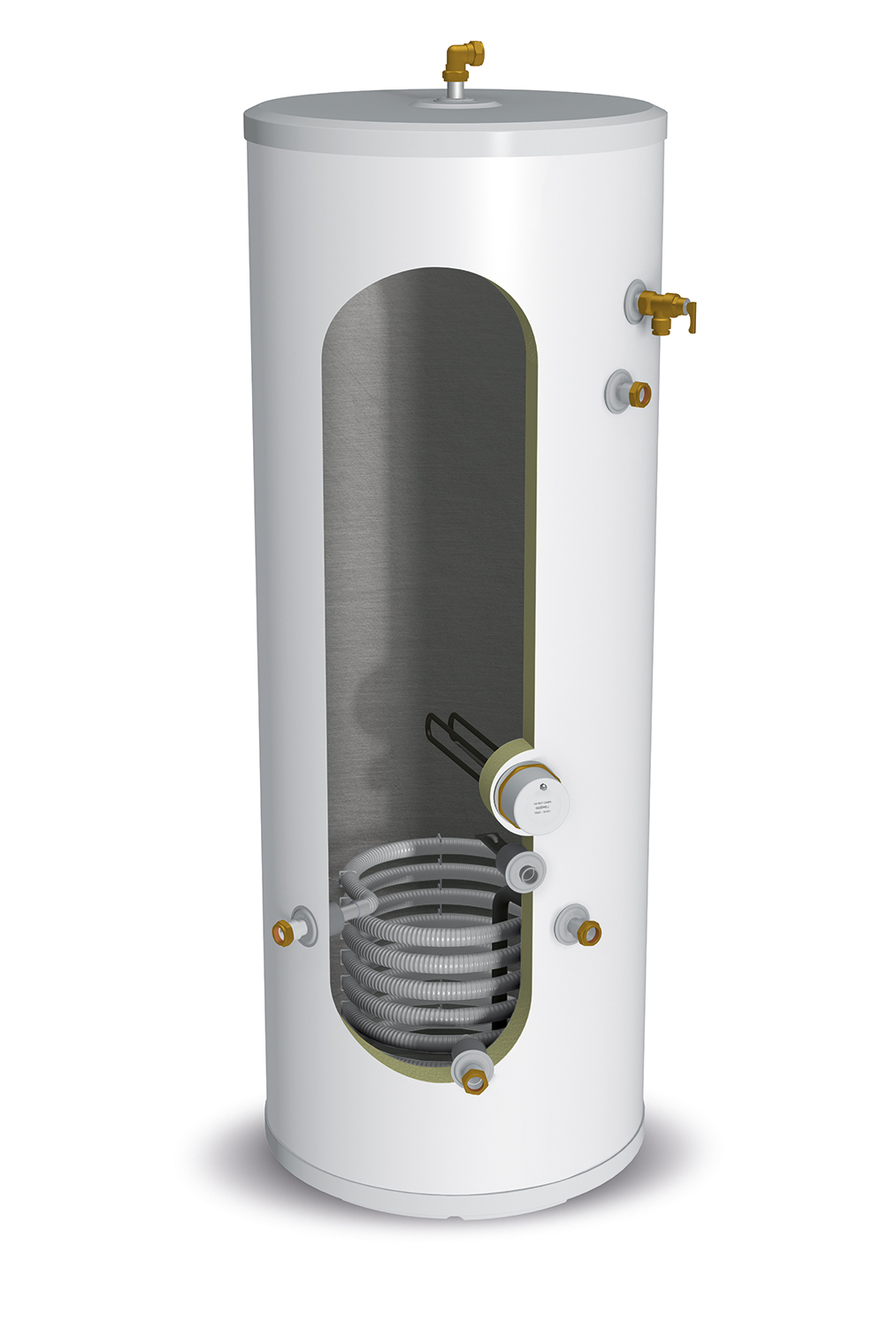Britain’s house builders are looking at alternative heating solutions to heat our home and domestic hot water, in reaction to the UK’s drive towards Net Zero by 2050. Embracing technologies, such as heat pumps, are expected to become the standard appliance for domestic heating and hot water in the majority of new homes in the future.
With the predicted rise of heat pumps being used across the UK in the coming years, there will be a rise in hot water cylinders, as they require an unvented cylinder that is specifically designed to work with this type of technology. Debbie Healey, Product and Project Manager at Gledhill discusses how hot water cylinders are already paving the way to contribute towards providing sustainable heating solutions.

The heart of the cylinder, the coil
The core components situated within a hot water cylinder is the coil. This vital tool is there to maximise the heat transfer to the cylinder’s body of water, making it effectively the heart of the system. The coil’s ability to maximise heat transfer by utilising gas, but also alternative energy sources such as solar panels and more importantly, heat pumps.
The StainlessLite SuperCoil can be found in all of Gledhill’s stainless steel ranges, but how does it work? The SuperCoil has multiple ridges along its length, when compared to competitors’ coils which are smooth. The multiple ridges along its length enables 20% more surface area, meaning that it can provide faster reheat times, while also maintaining its lightweight benefits.
Gledhill’s coils are essentially three coils in one, which are unique to Gledhill. They work together to produce better circulation within the cylinder, meaning that less power is required from the circulation pump and therefore allowing the disperse of energy much quicker than the standard cylinder. This then allows the release of heat into the hot water quicker and efficiently, while also retaining the heat for much longer, with the assistance of insulation.
The importance of insulation
Insulation is a key part in maintaining the cylinders heat and ensuring the heat loss is at a minimum. Hot water cylinders are now typically supplied with factory-applied insulation, which is either spray foamed or injected between the tank and an outer casing. As part of this, a number of insulation materials can be used with various thermal conductivities. The higher the thermal conductivity of a material, the more easily it will transmit heat, and a high thermal conductivity will usually result in a much thicker layer of the material being needed.
Gledhill EnviroFoam insulation not only ensures heat loss is at a minimum, but also provides additional ‘greener’ benefits. Such as 50mm HCFC free insulation, which achieves exceptionally low standing heat loss, which maximises energy efficiency for your customers.
There are other aspects outside of the cylinder that would provide further environmental credentials such as Agile energy tariffs.
Agile Energy Tariffs
Agile energy tariffs are becoming popular among households across the UK. Not only do they provide a cheaper way for consumers to use their energy, but they also engage in using flexible and more efficient ways to provide energy.
How do they work? Agile energy tariffs work by tracking daily wholesale energy prices and providing the next day’s pricing sometime after 4pm for the day before. The pricing can change every 30 minutes, so a smart meter is needed. Whenever more electricity is generated than consumed the energy prices fall, sometimes to the point where prices drop below, and suppliers are paid to take energy off the grid. The purpose of agile energy tariffs is to take advantage of these negative price events and get paid for the electricity you use. With the use of the smart meter, customers are able to track their usage and plan their usage accordingly.
Not only does it deliver cheaper energy for consumers, but it also encourages a more flexible and efficient way to use energy. It has also created a shift in consumer consumption away from using energy in peak times.
As we begin to enter a more decarbonised world for heating our homes, Britain’s housebuilders are able to reap the benefits of already existing technology that will contribute to a more sustainable future.
Gledhill, experts in hot water cylinders and renewable solutions have innovation at the forefront of their cylinders and manufacturing process. Through the research and development phase ensuring maximised benefits are being made through the heart of the cylinder, the coil, to working within the manufacturing process and providing key insulation to cylinders and preventing any unnecessary heat loss.
